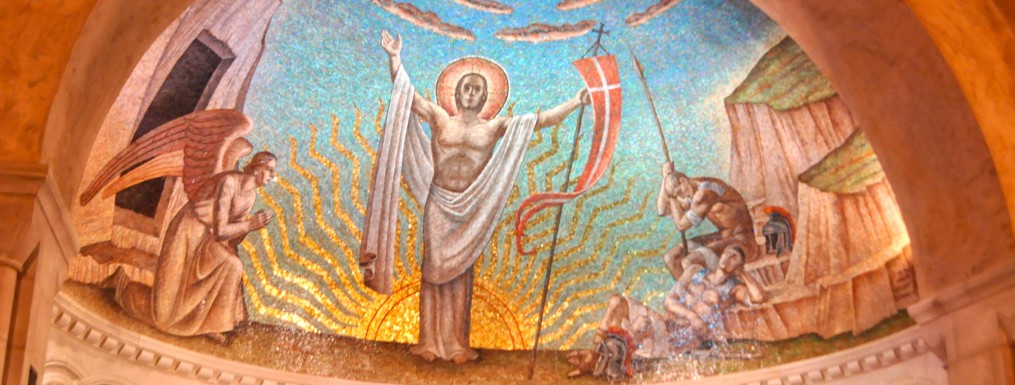Praise the Lord. Give thanks to the Lord for he is good; His love endures forever. Psalm 106:1
This has been a tough verse to swallow in the last ten days for my kids at school. There is no goodness in death itself, and it is hard to reconcile an untimely death and a sovereign and omnipotent God. “If God is good then why…” has echoed in their words and in their tears. And, to be honest, it has echoed in my own thoughts and tears as I have pulled together faith and love and steadiness; we must walk our talk, show our faith to those who desperately need to see what faith looks like when they can’t feel it. This means overcoming our feelings with truth.
Though our feelings come and go, his love for us does not… CS Lewis
I pulled out some old notes for a class I am teaching at school, and in the folder there was a small collection of notes dated October 6, 1999. The notes were in my Church History notes from 2006; seminary in Wake Forest is a lifetime away from college at UTC, so I have no doubt these notes were divinely “misplaced” so I would find them today.
I have no idea where I was or who was speaking (which is why I have since become obsessive about documenting notes. The historian in me believes this to be a requirement, and now I know why), but we were apparently discussing the characteristics of God. At this particular time we were discussing God’s goodness, and this one statement, written in my own hand, jumped off the page at me this morning:
“We would never willingly give up our son, but we praise God for the lives changed through his death.” This is a particularly jarring statement at this point in life, considering this anonymous statement echoes the cries of our hearts in the loss of a son, brother, teammate, classmate, friend and student last week.
We can’t understand God’s goodness because we’ve changed good to mean “something that pleases our senses.” But in reality, God and His characteristics are the only things that can define good.
In other words, God is the standard of good, not our desires. If God brings it, it is good, indeed it is best, regardless of our feelings toward the situation.
In the remainder of my notes from this event, there are many verses quoted, followed by one line observations I wrote then and have considered quite a bit today. I do not believe this will be the last day of my life that my heart will need to be reminded of the goodness of God. The italicized portions are the verses and quotes provided by the speaker, the bold statements are the questions and observations I jotted down in 1999.
The LORD is gracious and merciful; Slow to anger and great in lovingkindness. The LORD is good to all, And His mercies are over all His works. All Your works shall give thanks to You, O LORD, And Your godly ones shall bless You. They shall speak of the glory of Your kingdom And talk of Your power; To make known to the sons of men Your mighty acts And the glory of the majesty of Your kingdom. Your kingdom is an everlasting kingdom, And Your dominion endures throughout all generations. The LORD sustains all who fall And raises up all who are bowed down. Psalm 145:8-14
A ruler questioned Him, saying, “Good Teacher, what shall I do to inherit eternal life?” And Jesus said to him, “Why do you call Me good ? No one is good except God alone.” Luke 18:18-19
If God is good, then what he really wants is what’s best for me, right? Can I trust you with my life?
Do not be deceived, my beloved brethren. Every good thing given and every perfect gift is from above, coming down from the Father of lights, with whom there is no variation or shifting shadow. James 1:16-17
God wants what’s best for me, but not necessarily what’s easy for me.
Those who dive in a sea of affliction bring up a rear pearl. Charles Spurgeon
When we truly trust God, we will not have anxiety or worry.
Now my last observation about trust and worry is much more cut and dry in the mind of the 19 year old who wrote the words than it is in the mind of the 32 year who read the same words today. It’s not either/or; sometimes trust and anxiety occur in overwhelming doses of both/and. But I know that anxiety causes me to either lean more and more on him or more and more on my own devices to relieve the situation. And I also know that the more I cast my anxieties on him, they are lessened, while the more I carry my anxieties on myself, the more they seem to multiply. And sometimes “casting” is a continuous action throughout a day.
Is it your whole life? Do you have a relationship? Trust that God wants what’s good for your life.
THAT is the key. That question: do you trust God? Do you trust that He wants what’s best for you? Do you trust that HE is what’s best for you?
The words, spoken to the ears of an 19 year old in 1999, heard today by the heart of a 32 year old, were delivered by the Spirit at just the right time. May they speak to your heart at just the right time.

